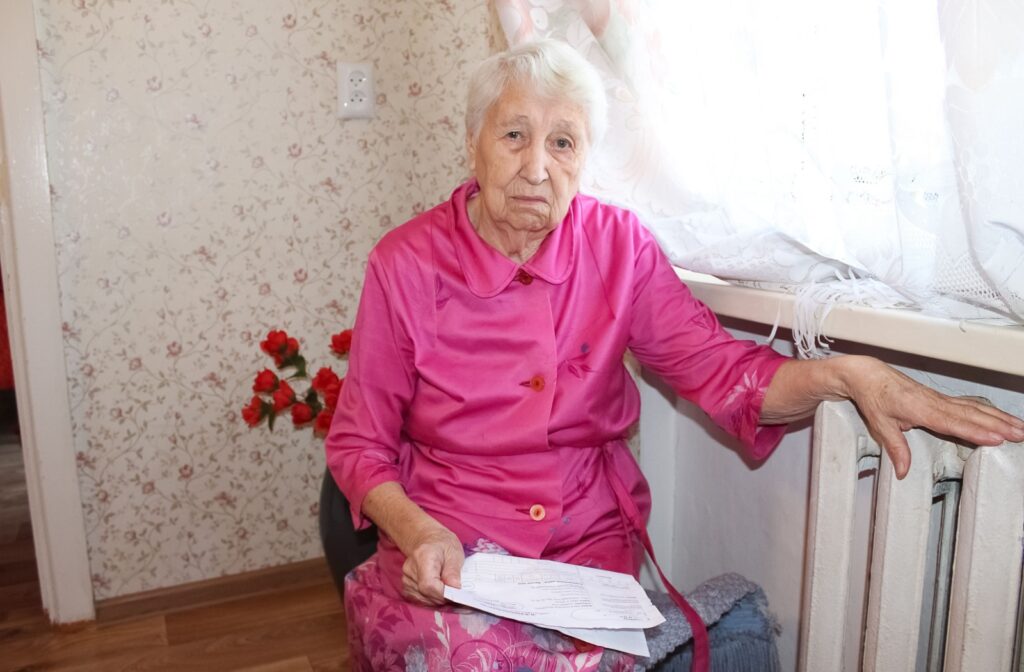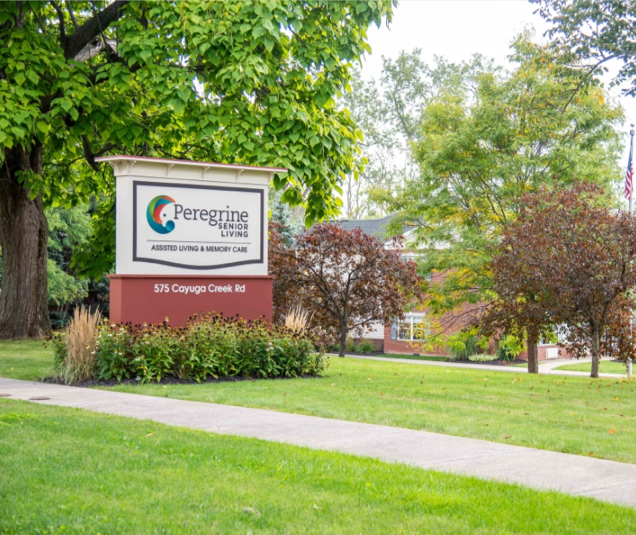Dementia often leads to decline in a person’s mental functions, which impacts their everyday activities. It primarily affects older adults. Dementia can interfere with a person’s decision-making abilities, raising questions about whether an individual with dementia has the cognitive capacity to understand and sign legal documents.
In order to handle legal matters, an individual must be able to think clearly and possess the ability to make informed decisions. If they retain the legal capacity to act on their own behalf, then they can sign documents. However, it’s advisable to seek a healthcare professional’s opinion before proceeding with significant legal steps.
Peregrine Senior Living at Cheektowaga offers resources to help individuals and their families navigate these challenges, enabling them to focus on what matters most.
What Does Legal Capacity Mean?
Understanding legal capacity involves recognizing the significance of a contract or agreement before signing it. This concept encompasses not only intellectual knowledge but also a person’s understanding of the legal implications and consequences of their actions in the future.
When determining whether someone with dementia has legal capacity, it’s essential to assess whether they still have the mental ability to fully understand both their choices and those choices’ potential ramifications.
Legal Capacity & Dementia
For someone diagnosed with dementia, making sound decisions may become increasingly difficult over time. That’s why early planning is crucial. Addressing legal matters sooner allows the person with dementia to participate actively in significant decisions and fully understand the implications of legal documents.
As dementia progresses, it may hinder the individual’s ability to express their thoughts clearly. Consequently, legal commitments made during this period may not accurately reflect their true desires.
Legal Capacity Assessments
Since dementia affects each person’s cognitive abilities uniquely, assessing legal capacity is a delicate process that often requires insights from medical professionals. Healthcare practitioners, legal experts, and other specialists conduct thorough evaluations to determine whether individuals with dementia have the legal capacity to sign legal documents. These assessments examine the person’s ability to process information and make reasoned decisions.
Neurologists or psychiatrists may contribute to this evaluation, offering detailed analyses of the individual’s cognitive health. Such professional assessments are crucial when courts rule on the legitimacy of signed legal documents.
Document Types
The complexity of the legal document in question also influences the level of understanding required. For example, a will or power of attorney may not demand the same depth of comprehension as more intricate legal agreements. Courts consider both the complexity of the document or documents as well as the individual’s ability to grasp the specifics involved.
Guardianship or Power of Attorney
If someone with dementia cannot legally sign documents, it’s wise to consider establishing a power of attorney or setting up guardianship. These legal arrangements provide a structured framework to ensure that important decisions are made in the best interest of the individual with dementia.
Power of Attorney
A power of attorney is a legal document that grants a designated person, known as the agent or attorney-in-fact, the authority to make decisions on behalf of the individual with dementia (the principal). This authority can encompass financial, medical, and personal affairs. There are two main types of power of attorney relevant in the context of dementia:
- Durable Power of Attorney: This remains in effect even if the principal becomes mentally incapacitated. It allows the agent to manage financial matters, pay bills, handle investments, and make other financial decisions.
- Healthcare Power of Attorney: This enables the agent to make medical decisions for the principal, such as consenting to or refusing medical treatment, choosing healthcare providers, and making end-of-life care decisions.
Establishing a power of attorney early, while the individual with dementia still has the capacity to understand and agree to it, ensures that their wishes are respected and helps avoid potential legal challenges.
Guardianship
Guardianship, also known as conservatorship in some jurisdictions, is a court-appointed role where a guardian is given the legal authority to make decisions for someone who is deemed incapable of managing their own affairs due to severe cognitive impairment. The process involves several steps:
- Petitioning the Court: A family member or concerned party petitions the court for guardianship, providing evidence of the individual’s incapacity.
- Evaluation: The court may require medical evaluations and testimonies from healthcare professionals to assess the individual’s cognitive state.
- Hearing: A judge reviews the evidence and hears from all parties involved before making a determination.
- Appointment: If granted, the guardian is appointed and granted specific powers to act on behalf of the individual with dementia.
Guardianship is generally considered when no power of attorney is in place, or when there are disputes about the individual’s care and decision-making ability. It offers a comprehensive way to protect the rights and interests of the person with dementia, but usually involves more oversight and ongoing court involvement.
Ensuring Best Interests
Both power of attorney and guardianship aim to protect the well-being and rights of the individual with dementia. By appointing a trusted person to make decisions, families can ensure that their loved one’s financial, medical, and personal needs are managed responsibly and ethically. These legal tools help safeguard against exploitation and ensure that the individual’s preferences and best interests are upheld.
By planning ahead and establishing such legal protections, families can navigate the complexities of dementia care with greater assurance and peace of mind.

Protection Against Legal Challenges
The legal framework includes protective measures for those who may not be able to manage their affairs due to cognitive impairments. These measures aim to prevent exploitation and ensure that individuals fully understand the commitments they undertake.
When an individual with dementia needs to sign important documents, a guardian or conservator is often appointed to oversee such matters. This ensures that any decisions made are in their best interest.
In cases where an individual with dementia has signed a document, concerned relatives or acquaintances may later dispute its validity, questioning the person’s capacity to understand the agreement. They may argue that the contract should be invalidated. To avoid such disputes, it is crucial to conduct capacity assessments before any significant legal documents are signed.
Informed Consent & Dementia
When an individual with dementia needs to sign legal documents, it’s crucial that they fully understand what they’re signing. Lawyers typically work to simplify legal jargon and provide individuals with dementia ample time to comprehend everything. This ensures that, when they give their consent, they truly understand what they’re agreeing to.
Autonomy & Protection in Law for Those with Dementia
Assisting individuals diagnosed with dementia in signing legal documents is about treating them with kindness and ensuring their safety. This involves more than just the legal aspects; it requires a compassionate approach that respects their dignity and autonomy while safeguarding their interests.
At Peregrine Senior Living, we understand the complexities and emotional challenges that come with supporting a loved one with dementia. Our commitment extends beyond providing excellent care; we also offer guidance and resources to help families navigate the legal and practical aspects of dementia care. Reach out to us to discuss how we can assist you and your loved ones.












We are getting ready for Valentine’s Day the sweetest way 💕
We made chocolate suckers and clusters, and took a trip to Wahl’s Candies for some delicious treats. ... See MoreSee Less
0 CommentsComment on Facebook
Easter Egg HuntMar 29, 1:30pm575 Cayuga Creek Road, Cheektowaga, NY, United States, New York 14227Easter Egg Hunt-Please RSVP by March 22nd. We hope to see you there!
The egg hunt will begin promptly at 2pm for 0-3 year olds and 2:10pm for 4 and older.
We will have snacks, drinks, and crafts available, and the Easter Bunny will be visiting for pictures! ... See MoreSee Less
0 CommentsComment on Facebook
February is American Heart Month, a time to focus on caring for the muscle that keeps us moving and thriving. 🫀
We encourage residents to take heart-healthy steps every day: enjoying balanced meals, staying active, connecting socially, and taking moments to rest and recharge.
Together, we can make heart health a daily celebration of life and well-being.
peregrinecheektowaga.com/ ... See MoreSee Less
0 CommentsComment on Facebook
Want to stay connected with what’s happening across our community?
Follow us on Instagram for updates, moments we love, and stories worth sharing.
Come join the community by following us via the link below ⬇️
www.instagram.com/peregrinecheektowaga/ ... See MoreSee Less
0 CommentsComment on Facebook
February is a time for love and friendship! 💕
We are celebrating Galentine’s Day this Friday in honor of all of our amazing women. On Saturday, residents will enjoy a special Valentine’s Day dinner with music. We are also excited to welcome a Black History Month storyteller on February 24th (not posted on the calendar). Plus, there are many more fun activities and events to look forward to throughout the month! ... See MoreSee Less
0 CommentsComment on Facebook
Here are the Super Bowl square numbers. If you win, we will reach out on Monday. Good Luck! ... See MoreSee Less
1 CommentsComment on Facebook
We had our annual “Soup”er Bowl today! All of the soups were delicious, but this year’s winner was Rebecca, our Activity Director, with her Red Pepper and Tomato Soup. We can’t wait for the next cookoff! ... See MoreSee Less
0 CommentsComment on Facebook